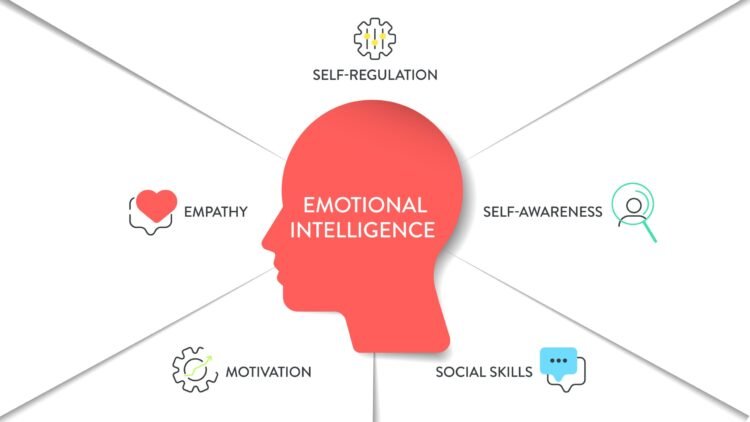There are several types of jobs where emotional intelligence (EI) assessment could be effective in personnel selection. Moreover, high EI is necessary for highly demanding jobs. For instance, lawyers and file clerk, who face a lot of emotional labor during their day-to-day work, may fake their chances of securing a job position or use interpersonal interactions. However, such jobs as accountants and welders, which have little to no emotional labor, do not depend on emotional skills. HR professionals may not effectively measure or predict EI via testing methods. For instance, on the psychometric test for EI, it is impossible to predict EI as it is a measure of cognitive intelligence rather than EI. The use of practice employment tests is significant in improving recruitment and personnel selection outcomes for highly demanding job positions. Therefore, HR professionals who are ardent about using psychometric tests for EI may discover that they are Continue reading
Emotional Intelligence
The Importance of Emotional Intelligence
The concept of emotional intelligence (EI) is an integral part of all areas of human development. However, as with many other scientific ideas, scientists still cannot agree on what emotional intelligence is. There are many definitions of emotional intelligence. Some define emotional intelligence as a set of non-cognitive abilities, competencies, and skills that affect a person’s ability to cope with challenges and environmental pressure. Others see this as the ability to be aware of their emotions and the emotions of others in order to motivate themselves and others and to manage emotions well in private with themselves and when interacting with others. Since the trainer is more a practitioner than a scientist, a shorter definition is preferred, which is easier to work with during the training and which conveys the essence of this scientific concept. Emotional intelligence is the ability to be aware of one’s emotions and the feelings of Continue reading
The Importance of Emotional Intelligence for Leaders
Leaders need to have traits that are visionary and should be competent enough to attain the intended goals of the organization; meaning that the future of the organization lies squarely on the ideas generated by them. Such people should be inspired and possess the capability to explain it to the rest of the leaders or work mates. For a leader to induce change in an organization, there are issues that he or she needs to be well versed in. While taking care of issues that arise from the management, some challenges are evident especially those that touch on the management criteria of the organization. Leaders should know that it is important to understand the success they achieve in an organization results from teamwork and should not be credited to specific individuals. In addition, managers should be prepared to let go of outdated cultures or practices in the company; this means Continue reading
The Five Components or Competences of Emotional Intelligence
Emotional intelligence is the ability of an individual to recognize their own feelings, those of other people, in order to motivate one self and as well be able to manage our emotions, in our own self and in the relationships that we are having with other people. Times back, emotional intelligence was never recognised but as times goes it has been realised that emotional intelligence is a very important thing in the workplace today. It has been realised also that the IQ that an individual has, or having a high IQ does not matter and it does not guarantee a successful business. From Daniel Goleman’s book on working with emotional intelligence, we are able to see that most of the outstanding performers in the areas of business and great business leaders are mainly defined in the areas of their jobs by their “emotional intelligence” and not exactly by their job Continue reading
Five Domains of Emotional Intelligence
Several studies have demonstrated that individuals with purely high IQs possess a great range of intellectual interests and abilities, they have difficulty dealing with their own emotions and with the emotions of others. Other intangible characteristics and abilities, such as self-motivation, impulse control, the ability to regulate one’s own emotions, and empathizing with others clearly have an effect on a person’s accomplishments in life; these qualities have been collectively termed Emotional Intelligence. People with high emotional intelligence levels excel socially, are outgoing and cheerful, are rarely fearful or worried, and are sympathetic and caring in their relationships. Read More: Four Components of Emotional Intelligence Five Domains of Emotional Intelligence Emotional intelligence can be broken down into five main domains: knowing one’s emotions, managing emotions, motivating oneself, recognizing emotions in others, and handling relationships. 1. Knowing One’s Emotions – Self Awareness People deal with their emotions by either being aware of Continue reading
Introduction to Emotional Intelligence – Definition and Nature
Classic Intelligence and rational thinking have dominated Western Society for centuries. It was Freud who showed, through his analysis of the unconscious, that there is more to us than rational thinking. Since Freud, the development of psychology has brought the insight that a person’s actions are not just rational or logical, Emotional Intelligence seems a good name to name our “non-rational” way of thinking and being. “In the last decade or so, science has discovered a tremendous amount about the role emotions play in our lives. Researchers have found that even more than IQ, your emotional awareness and abilities to handle feelings will determine your success and happiness in all walks of life, including family relationships.” (John Gottman, Ph.D) What is Emotional Intelligence? Quite simply, emotional intelligence is the intelligent use of emotions: You intentionally make your emotions work for you by using them to help guide your behavior and Continue reading


